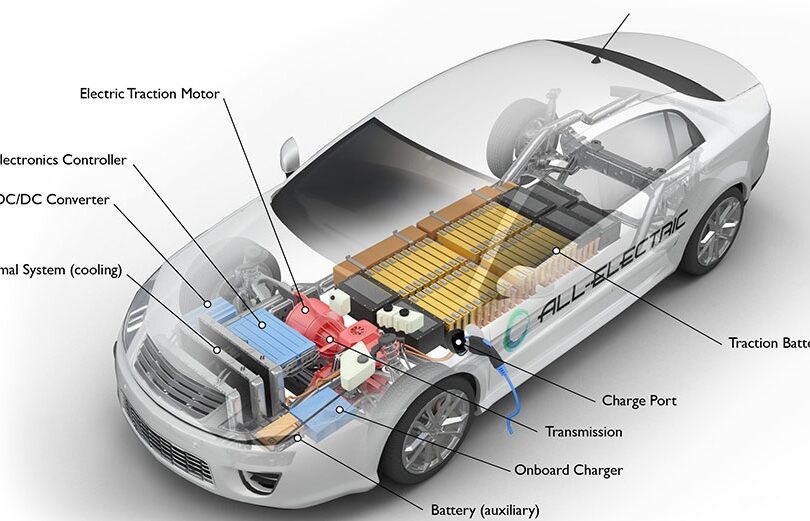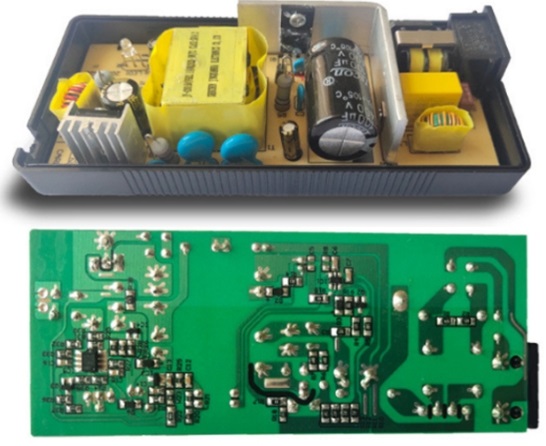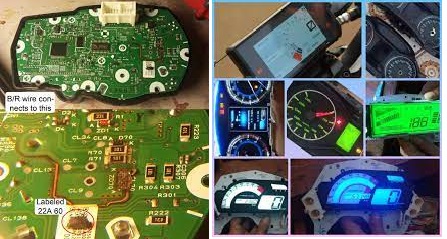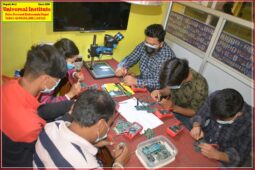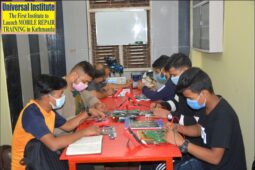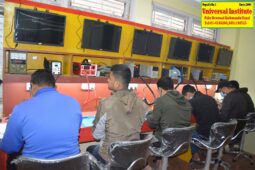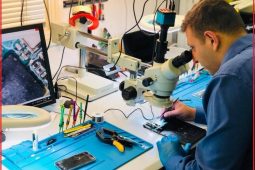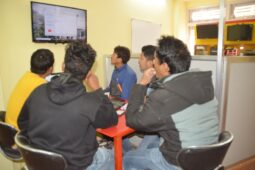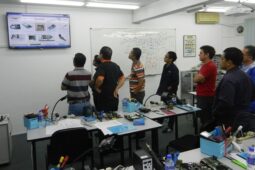Electric Vehicle Training Center in Kathmandu | EV Training Center
Universal Institute was established in the year 2000 ad with an aim to facilitate advance training for youth, support for self-employment and dissemination through ethical and value-based learning while catering to the needs of new entrepreneurs.
Universal Institute is a leading company in electric vehicle which offers specialized and customized training, Research and Development programs to suit the industry and academics requirements. Our programs are focused on Practical Learning Approach model to give the technological edge in learning and knowledge about the technology and its application. Our training programs are highly recommended and appreciated by the industry and academicians.
Electric vehicles (EV) are more than just a novel way of mobility. They will bring out a major change in the technological, digital and social aspects of transport and energy infrastructure. Learning, and implementing the technology behind electric vehicles is the aim of this course. Explore the working theory of electric vehicles, delve into the key roles of engines and power electronics, learn about battery technology, Electric motor technology, Controller, EV charging and future trends in electric vehicle production.
The course is demonstrated by experts in this field. This course is designed keeping in view the upcoming trends in the electric vehicles sector to develop the candidates with the skills required to set up & repair a wide range of a to z electric vehicles along with specifications, standards & legal aspects of electric vehicles.
In line with the increasing acceptance of electric vehicles, 35 percent of vehicles on Nepal’s roads are projected to be electric or hybrid electric vehicles by 2030. Currently, there are around 25000 vehicles in Nepal.
Trainer of the Institute, Er.DP Tiwari, said that the company is conducting training focusing on how to repair all types of electric vehicles including scooters, bikes, cars and how to conduct workshops for electric vehicles or how to work for electric vehicles in the previous workshop.
Electric Vehicle Training in Nepal
The course has been introduced with Developing knowledge and skill on Motor, Controller, Battery, BMS, Charger equipments Discussion on Handling 2 wheeler 3 wheeler and 4 wheeler Service & Maintenance.You’ll learn at theE-Vehicle Repairing Course in nepal about automotive electronics, the working principles of electric cars, the operating principles of automotive sensors and actuators, different control units in electric vehicles, different communication protocols in electric cars, the critical roles of motors and power electronics, battery technology.
Universal Institute’s mission is to meet the needs of the emerging growth electric vehicle industry by providing high value services, while fostering clean, sustainable and healthy transportation to the community at large. The training program will be conducted by technicians from India and it will focus on both electric two-wheelers and four-wheelers repair and maintenance.
Electric vehicles consists of an electric motor that is powered by a battery pack. The main advantage of electric vehicles is that they emit zero emissions and are eco-friendly.The main components of electric vehicles are :
Onboard charger: converts incoming AC electricity supplied via the charge port to DC power to charge the traction battery; communicates with the charging equipment; monitors voltage, current, temperature, and state of charge. Power electronics controller: manages electrical flow, controls the speed of the electric traction motor, and the torque produced
Traction battery pack: stores electricity. Traction battery pack is also known as Electric vehicle battery (EVB) . It powers the electric motors of an electric vehicle. The battery acts as an electrical storage system. It stores energy in the form DC current. The range will be higher with increasing kW of the battery. The life and operation of the battery depends on its design.
Electric transmission: transfers mechanical power produced by the electric traction motor to drive the wheels
Electric motor: Electric traction motor is the main components of electric vehicle. The motor converts the electrical energy into kinetic energy. This energy rotates the wheels. Electric motor is the main component that differentiates an electric car from conventional cars. An important feature of an electric motor is the regenerative braking mechanismThere are basically two types of motors DC and AC motors.
Power Inverter: It coverts DC power from the batteries to AC power. It also converts the AC current generated during regenerative braking into DC current. This is further used to recharge the batteries.
Power electronics Controller: Power electronics controller determines the working of an electric car. It performs the regulation of electrical energy from the batteries to the electric motors. The pedal set by the driver determines the speed of the car and frequency of variation of voltage that is input to the motor. It also controls the torque produced.
Which is the best institute to learn EV Training in Nepal?
Universal is a leading Electric Vehicle Training Company in Nepal. They offer a comprehensive range of courses covering various aspects of EV technology, including battery systems, power electronics, motor control, and charging infrastructure. While there are a number of institutes offering EV training in Nepal, Universal Electronics Institute has been able to stay at the top position on a consistent basis. It is the best EV training in Kathmandu Nepal. Our focus on creating a learning environment, combined with our experienced team of professionals and world- class infrastructure has helped us deliver the best to our students and has made us the best EV training center in Kathmandu. Universal Electronics Institute Kathmandu has a modern lab equipped with latest tools that facilitate participants in having a thorough hands-on experience through live projects.
EV Training Center Near Me
Are you typing at the EV training centers near me on your small screen? You have landed in the right place. Universal Electronics institute is an emerging name as an EV training institute that can help you accomplish your career objectives beyond expectations. Our course covers various things such as Basic concepts to advance of the ev system, Knowledge about EV components and their working functions, in the EV electrical field.
Benefits of Taking Courses in Electric vehicle
Taking courses in Electric vehicle technology offers numerous benefits that can fast-track your career in this dynamic field. Firstly, these courses provide you with a solid foundation of knowledge, covering everything from the basics of Electric vehicle technology to more advanced concepts like battery management systems and charging infrastructure. This comprehensive curriculum ensures that you have a well-rounded understanding of Electric vehicle technology, equipping you with the skills needed to excel in your career. Additionally, these courses often provide hands-on training, allowing you to gain practical experience working with Electric vehicle components and systems. This practical knowledge is highly valuable, as it gives you a competitive edge when applying for jobs in the Electric vehicle industry. Lastly, many of these courses are led by industry experts who bring years of experience and knowledge to the classroom. Learning from these experts not only enhances your understanding of Electric vehicle technology but also provides you with valuable insights into the industry, helping you stay updated with the latest trends and developments.
Electric Bike Training
This course is perfect for a technically minded person to acquire the skill set necessary for repairing E bikes. The Light Electric Vehicle E-Bike Technician Training and Certification Program consists of 2 levels of training and certification. General safety measurements, history of E-bike, information about manufacturing companies of E-bike, Basic electrical and electromagnetic concepts, checking of battery, making of series and parallel connections, appropriate use of tools and equipment.
- Introduction of Electric Vehicle(EV)
- Types of Electric Vehicle like BEV, HEV, PHEV.
- Difference between Petrol vehicles and Electric Vehicles
- Electric Vehicle Hub Motor from working EV.
- Hub Motor and Hal Sensor.
- Controllers, Dc-Dc Converter, Switches, Electric Throttles
- Electric Vehicle Hub Motor from working EV.
- Test Battery Capacity between Lithium ion and Lead acid
Electric Bike Parts
battery types, battery accessories, use of hydrometer, E-brakes, freewheels, torque sensors, electrical engine starting system, tracing of electrical circuits, sensors in E-bike, chassis, transmission, power management, inspection of controller connections and controller, wiring, insulation and other electrical connections.
Electric Scooters Training
The electrical scooters certification course is a learning program designed for students and corporates aspire to work and design and manufacturing sector and aim to develop the required skills to build and sustain future electric scooters. This program enables the engineering professionals working related fields to gain knowledge and expertise in Vehicle dynamics, Architecture, Motor Design, Ergonomics, Battery Technology to help in designing, building, testing and sustaining future automotive systems using Electric Vehicle technologies.
The programme tends to equip students and professionals with multidisciplinary expertise and increase the practical exposure with the tools and functioning of the Electric scooters via online lectures.
Electric scooters have a handful of different major parts are: batteries, brakes, controller, deck, handlebars, lights, motor, stem, suspension, and tires.
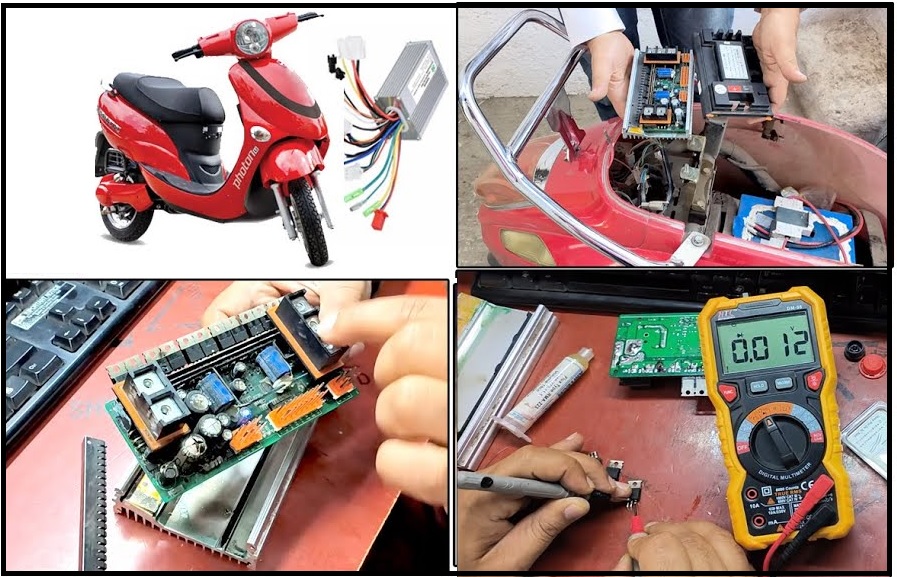
This course is strictly to enable the students to start earning money by repairing the Electric Vehicles (ev) electric scooters, electric motorcycle and electric car. It will give a thorough and practical understanding of Electric vehicle to the students.
Session: 1
- What is an Electric Vehicle, how it differs from ICE vehicles
- What are the components of EV
- What is ARAI and its significance?
- Different companies in electric Vehicle, manufacturing business in Nepal
Session: 2
- Basics of Electric Motor
- Motor Specifications, Selection of appropriate Motor for various needs
- Different types of Motors used in EV.
- What are the problems in the Motors and how to repair it?
Session: 3
- Basics of an Electric Battery and its use
- How to check the capacity of battery, different notations used in batteries like V, AH, HR etc
- Overview of Battery technology in electric vehicle applications.
- Overview of Lead acid, Lithium ion, Lithium ion phosphate battery.
- Series and parallel connections of batteries and its use.
Session: 4
- Controller Design of Electric Vehicles
- What is a DC-DC CONVERTER?
- Electrical Connections and troubleshooting using meter
- Different types of electric Electric Vehicles chargers
- Slow and Fast chargers
- High level Repairs of chargers
Electric Rickshaw Training
Electric rickshaws are small 3-wheeled vehicles powered by a battery-powered electric motor ranging from 650 to 2000 watts. They have a battery deep cycle lead acid and a motor starting at 650 W to 2000 W. The battery voltage is 48 V or 60 V. The vehicle features a headlight, tail lights, turn indicators, horn etc. The top speed of an e rickshaw is 20 to 35 kmph. Speed depends upon what power level you use or what charge level your battery is at.
This course will make you able to understand the mechanism of electric bikes, electric scooter and electric rickshaw how work and how you can we maintain them. There several opportunity in electric bikes, electric scooter and electric rickshaw market either you can start your repairing business or you can find a job.
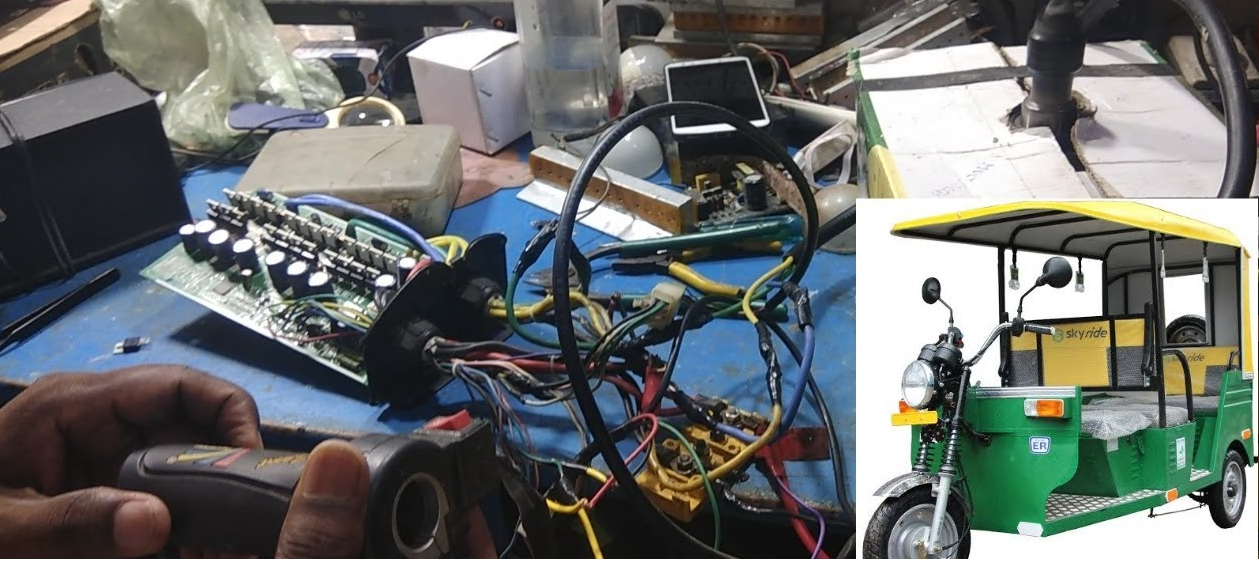
eBike, e Scooter,e Rickshaws Controllers Repair Training
Controllers are an important part of the electric bike and electric scooter system. They take input from the user and convert it into electrical signals that control the speed, power, and direction of the electric bike and electric scooter.if your controller has been damaged, then you’re going to need to find a way to repair it.
Application:
- It can be powered by any battery at 24V,36V,48V OR 60v, the battery type can be Lithium battery ,Lead Acid battery.
- It can be suitable to the general e-bike motor or e-bike Scooter system.
- It is well matching varies of throttle, brake handle, power meter and related kit
We are master in Electric bike ,Electric Scooter controllers repairing. The candidate who want to learn electronic controllers basic+medium+advance level can join our online plus physical course for 1 month and 2 month duration. We covers controllers are an important part of the electric bike and electric Scooter system Integrated Circuits-IC Chips, Power Transistor, Capacitor, Resistors, Connectors, Diodes, Microchips, LCD Displays etc,
Session: 1
- What is Controllers? ,
- Various types of Controllers
- What are the Sections?
- Primary section Drawing
Session: 2
- AC to DC Conversion,
- DC to AC conversion standby
- Voltage Section.
- Feedback Voltage,
- Primary Voltage
- Switching Mosfet Transistor Section
Session: 3
- Regulating Voltage
- Power Good Controller
- DC Voltage Splitting,
- Output Voltage Controller IC
- Fault finding of Controllers Problems
- Tracing the Circuit of Controllers Section
EV Charger Repairing Training
A battery charger is an electronic circuit that converts power using switching devices that are turned on and off at high frequencies, and storage components such as inductors or capacitors to supply power when the switching device is in its non-conduction state. Electric scooter, electric bike and electric car charger have high efficiency and are widely used in a variety of electronic equipment, including computers and other sensitive equipment requiring stable and efficient power supply.
A battery chargers classified according to the type of input and output voltages. The four major categories are:
- AC to DC
- DC to DC
A basic isolated AC to DC switched-mode power supply charger consists of:
- Input rectifier and filter
- Inverter consisting of switching devices such as MOSFETs
- Transformer
- Output rectifier and filter
- Feedback and control circuit
Most of the commonly used topologies such as flyback, push-pull, half bridge and full bridge, consist of a transformer to provide isolation, voltage scaling, and multiple output voltages. The non-isolated configurations do not have a transformer and the power conversion is provided by the inductive energy transfer.
Advantages of switched-mode power supplies:
- Higher efficiency of 68% to 90%
- Regulated and reliable outputs regardless of variations in input supply voltage
- Small size and lighter
- Flexible technology
- High power density
Charger Repair Training
Just completed the charger repair course few days ago. Although this is a basic electronic course but my concentration for him was more on the charger repair. Due to this I just name it as electric Vehicles charger repair course. In fact this participant found me from website and he wanted to learn about electronic repair course.He gave me a called and visited me and one week later he came for the course.
We are mme , master in electronics board repairing. The candidate who want to learn charger reparing basic+medium+advance level can join our online plus physical course for 2 month duration. We covers power supply modules of all types ev charger devices like electric scooter, electric bike and electric car all kind etc.
Introduction to charger
- Introduction to a to z charger
- Identifying electronic components in different types of charger
- Block diagram of a typical charger and how it works
- Easy way to understand the 11 circuit functions of charger with the help of schematic diagrams
- Input protection and emi filtering circuit
- Bridge rectifier circuit
- Start up and run dc circuit
- Oscillator circuit
- Secondary output voltage circuit
- Error detection circuit
- Feedback circuit & Protection circuit
- Standby circuit
- Power factor correction (pfc) circuit
Bike & Scooter Speed Meter Repair Training
An speed meter is an instrument used for measuring the distance traveled by a vehicle, such as a bicycle, scooter,bike or car. The device may be electronic, mechanical, or a combination of the two (electromechanical). Digital Speedometer 40v,48v,60v,72v LCD display+battery Power/level Indicator indicate 3 speed.
An electric scooter-bike speed meter is equipped with a digital speed meter that can reach up to 50-80 km / hour (s). It is important to measure the speed of a motor- scooter’s-bikes speed meter to keep its engine well-maintained. A digital speed meter is an important measurement of speed as it isates the’s maximum speed up to 50-60 km / h.
An electric circuit is made up of several wires and cables. If you want a continuous flow of electric current, you need to utilize electrical connectors. speed meter for electricooterooter have plugs and jacks that link to one another to form either a permanent or temporary connection. So when you want to break the circuit, you can disconnect them with proper tools. one advantage of speedometer to electric scoot is that they help in reducing the amount of time, effort, and labor required to manufacture, assemble and install electrical equipment.
bike digital meter repair training
Speedo Meter Repairing
We are recognized as one of the most dependable enterprise dealing in all kinds of digital Speedometer Repairing in Nepal. The team of experts appointed to provide the service of repairing of Mechanical and Digital Speedometers have profound knowledge of every aspect of the respective service.Our team comprises of engineers, technocrats and others who have give new dimensions to Speedometer Repair.
Trainer profile:
Mr. DP Tiwari has done B.E. electronics and communication engineering with the specialization in power electronics & drive from Universal Electronics Institute in 2000.He’s an expert in Electric Vehicles design and development. He has submitted research papers in IEEE.
His interest and enthusiasm for teaching & learning, research & development and innovations in all fields lead him as a good contributor in the academic & industrial field. He has vast academic experience with various reputed universities & institutes. He has overall 22+ years’ experience. He’s involved in introduction of super capacitors in EV for extending the battery life of EV.
Course Duration and fees:
1.EV(Bike,Scooter & Rickshaw)- 75 Days Fee Nrs: 35000/-
2.EV(Car & Micro Van/bus)- 90 Days Fee Nrs: 65000/-
Training Time: 1.5 Hours Per day (Theory + Practical)
Language of instruction: Nepali/Hindi/English
Eligibility Criteria: 8 to 10th Class (At Least Completed Grade 8)
Group structure: 6 Participants per Group
New classes starts on: 1st, 10th and 20th (Every Month)
Book Now!
Limited Seats available.
Contact Details:
Universal Electronics Institute, Pako, New Road, Kathmandu
In front of Tamrakar Complex
Call: +977-9851198723, Tel: 01-5346260
